Planning worship?
Check out our sister site, ZeteoSearch.org,
for 20+ additional resources related to your search.
- |
User Links
Person Results
‹ Return to hymnal
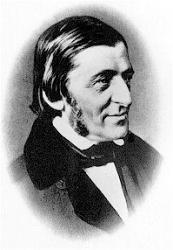
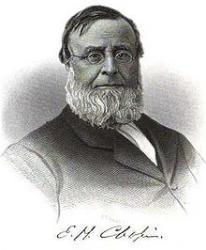

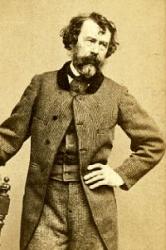
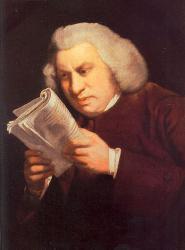
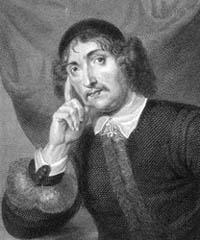
Export as CSV
Jane Cotterill
1790 - 1825 Person Name: Mrs. Cotterill Hymnal Number: a568 Author of "O thou, who hast at thy command" in Hymn Book for Christian Worship. 8th ed. Cotterill, Jane, née Boak, daughter of Rev. John Boak, and mother of the Right Rev. Henry Cotterill, Bishop of Edinburgh; born in 1790, married 1811 to the Rev. Joseph Cotterill; died 1825. Mrs. Cotterill contributed to the Appendix to the 6th ed. of Cotterill’s Selection, 1815, the following hymns:—
1. "O! from the world's vile slavery," (For Holiness). 2. "O Thou! Who hast at Thy command," (For Resignation). These hymns were repeated in Montgomery's Christian Psalmist, 1825, and Mrs. Cotterill's name was appended thereto for the first time. Their use is not extensive. The first, "O! from the world's," &c, is found in Kennedy, 1863, No. 521, as, "From this enslaving world's control," the alterations being by Dr. Kennedy.
--John Julian, Dictionary of Hymnology (1907)
Jane Cotterill
John Patrick
1632 - 1695 Person Name: Patrick Hymnal Number: a228 Author of "While shepherds watched their flocks by night" in Hymn Book for Christian Worship. 8th ed. John Patrick, a brother of Bishop Simon Patrick, was Prebendary of Peterborough, 1685; Precentor of Chichester, 1690; and preacher at the Charter-House, in the Chapel of which he was buried on his death, in 1695. His "Psalms of David, in Metre," were much used by Presbyterians and Independents until superseded by the compositions of Watts.
----Annotations of the Hymnal, Charles Hutchins, M.A. 1872.
John Patrick
Ralph Waldo Emerson

1803 - 1882 Person Name: R. W. Emerson Hymnal Number: a692 Author of "We love the venerable house" in Hymn Book for Christian Worship. 8th ed. Emerson, Ralph Waldo, son of an Unitarian Minister, was born at Boston, U.S., May 25, 1803. He was educated for the Unitarian Ministry, and acted, 1829-32, as one of their ministers. Ultimately he left the ministry, and devoted himself to lecturing and literature. As a philosopher, essayist, and poet he rose to a distinguished position. He died at Concord, Massachusetts, April 27, 1882. His published works include Poems, 1846; Orations, Lectures, and Addresses, 1844; Representative Men, 1850; English Traits, 1856, &c. His hymns are not numerous.
They include:—
1. Out from the heart of nature rolled. The Everlasting Word. This is part of his poem The Problem, published in the Dial, July, 1840; and then in the 1st ed. of his Poems, 1846. It was included in the Hymns of the Spirit, 1864, No. 636; and Martineau's Hymns, &c, 1873, No. 112.
2. We love the venerable house. The House of God. Written in 1833, for the Ordination of the Rev. Chandler Bobbins, who succeeded Emerson as Minister of the Second (Unitarian) Church, Boston. It is in the Hymns of thd Spirit, 1864, No. 224; and Martineau's Hymns of Praise and Prayer, 1873.
-- John Julian, Dictionary of Hymnology (1907)
Ralph Waldo Emerson
E. H. Chapin

1814 - 1880 Hymnal Number: a12 Author of "Our Father--God! not face to face" in Hymn Book for Christian Worship. 8th ed. Chapin, Edwin Hubbell, D.D., was the most distinguished man of the Universalists in later years. In his early days he was eminent as a lecturer; and as a preacher until his death. He was born in Union village, Washington, N. Y., Dec. 29, 1814, and educated at Bennington, Vermont. He was successively pastor at Richmond, Virginia, 1837; Charleston, Mass.; Boston, 1846; and from 1848, of the Church of the Divine Paternity, New York city. He died Dec. 26, 1880. He published several works, and edited, with J. G. Adams, Hymns for Christian Devotion, Boston, 1846. This is perhaps the most prominent Universalist Collection in the States. To it Dr. Chapin contributed the following hymns:—
1. Amid surrounding gloom and waste. During a Storm.
2. Father, at this altar bending. Installation of a Pastor.
3. Father, lo, we consecrate. Opening of a Place of Worship.
4. Hark! hark! with harps of gold. Christmas.
5. O Thou who didst ordain the word. Ordination.
6. Our Father, God! not face to face. Opening of a Place of Worship.
7. When long the soul has slept in chains. Charitable Institutions.
Of these No. 6 is the most widely used. In addition Dr. Chapin is the author of:—
8. Now host with host assembling. Temperance. This was given in Longfellow and Johnson's Book of Hymns (Unitarian), 1848, and from thence has passed Into other collections. It is entitled "Triumph of Temperance." and is well known. [Rev. F. M. Bird, M.A.]
--John Julian, Dictionary of Hymnology (1907)
E. H. Chapin
Alexander Pope

1688 - 1744 Person Name: Pope Hymnal Number: a303 Author of "Rise, crowned with light, imperial Salem, rise!" in Hymn Book for Christian Worship. 8th ed. Alexander Pope was born in London, in 1688. His parents were Roman Catholics. He had a feeble constitution, was deformed in person, and attained the age of only fifty-six. He early acquired the means of independence by his literary gifts, and purchased his celebrated villa at Twickenham, whither he went to reside at the age of thirty. Of his many published works, his translation of the "Iliad" and "Odyssey" of Homer has given him the greatest reputation. As an English satirist, also, he stands very high. Nearly all his works, however, are imitations. He died at Tickenham, in 1744.
--Annotations of the Hymnal, Charles Hutchins, M.A., 1872
========
Pope, Alexander, the poet, son of a wholesale linen merchant in Lombard Street, London, was born in Plough Court, Lombard Street, May 21, 1688. His father being a Roman Catholic, he was first placed under the charge of Father Taverner, who taught him the rudiments of Greek and Latin. Later he attended a school at Winchester, and then at Hyde Park Corner. When about twelve he retired with his parents to Binfield, in Windsor Forest, and from thenceforth his education was mainly in his own hands. His subsequent success as a writer and poet is a matter of history, and has been dealt with in detail by Dr. Johnson in his Lives of the Poets, and by others. He died May 30, 1744, and was buried in a vault in Twickenham Church. For distinct public use, so far as we are aware, Pope wrote no hymns. His "Messiah"; his "Universal Prayer"; and his "Vital Spark" (q.v.), have been made use of for congregational purposes, but as a Roman Catholic he had no object in writing a hymn in a language which, at that time, his Church would refuse to use. In modern hymn-books his name is identified with the following pieces:--
1. Father of all, in every age. Universal Prayer. The Lord's Prayer. This Prayer was published in 1738, as a conclusion to his Essay on Man, in 13 st. of 4 1. Warburton in his Advertisement of the 1748 ed. of the Essay, says:—
"Concerning the Universal Prayer which concludes the Essay, it may be proper to observe that some pas¬sages in the Essay having been unjustly suspected of a tendency towards Fate and Naturalism, the author composed that Prayer as the sum of all, to show that hi a system was founded in Freewill, and terminated in Piety: that the First Cause was as well the Lord and Governor as the Creator of the Universe; and that by submission to His will (the great principle enforced throughout the Essay) was not meant the suffering ourselves to be carried along with a blind determination; but a religious acquiescence, and confidence full of hope and immortality. To give all this the greater weight and reality, the Poet chose for his model The Lord's Prayer, which of all others best deserves the title prefixed to his Paraphrase."
The title here referred to is "The Universal Prayer, Deo Opt. Max." The hymn is found in common use in the following forms:—
(1.) Father of all in every age. This is an abbreviated form, and has been in use, especially in Unitarian hymnbooks, from an early date.
(2.) Father of all, [and] Thou God of love. This cento was given in 6 st. of 4 1. in the 1815 edition of Cotterill's Selections, No. 2; again in the 1819 ed., 141; in Stowell's Psalms & Hymns, 1831, No. 179; and again in later collections.
(3.) Not to this earth's contracted span. In Collyer's Collection 1812, No. 629, in 4 st. of 4 1., and others.
(4.) Teach me to feel another's woe. Also in Collyer's Collection, 1812, No. 630, in 4 st. of 4 1., and others.
(5.) Thou Great First Cause, least understood. Also in Collyer's Collection, 1812, No. 628, in 4 st. of 4 1., and later hymnals.
(6.) When I am right Thy grace impart. Given in Kennedy, 1863, No. 1166.
2. Ye nymphs of Solyma! begin the song. The Messiah. In No. 378 of the Spectator for Wednesday, May 14, 1712, Addison gave this poem with the introduction :—
"I will make no apology for entertaining the reader with the following poem, which is written by a great genius, a friend of mine, in the country, who is not ashamed to employ his wit in the praise of his Maker."
Then follows the poem with the heading, “Messiah. A Sacred Eclogue, composed of several passages of Isaiah the Prophet. Written in imitation of Virgil's Pollio." It consists of 107 lines. When republished by Pope this heading was expanded into a paragraph as an "Advertisement." As a poem it is unknown to the hymn-book; but from it the following centos have passed into common use:--
(1.) As the Good Shepherd tends his fleecy care. This was given in Collyer's Collection, 1812, No. 626, in 6 st. of 4 1., and has been repeated in later hymnals, but usually in an abridged form.
(2.) From Jesse's root, behold a branch arise No. 624 in Collyer's Collection, 1812, in 5 st. of 4 1.; and again in later hymnals.
(3.) Hark! a glad voice the lonely desert cheers. No. 625 in Collyer's Collection, 1812, in 4 st. of 4 1.; in Bishop Heber's posthumous Hymns, &c, 1827, p. 106; and again in later collections.
(4.) Rise crowned with light, imperial Salem rise. In the Leeds Hymn Book, 1853, No. 687, in 3 st. of 8 1., and several later collections.
(5.) The Saviour comes! by ancient seers foretold. In Mercer's Church Psalm & Hymn Book, 1864, and others.
It may be noted that 1. 46 of The Messiah reads in the original "He wipes the tears for ever from our eyes." This was altered by Pope at the suggestion of Steele, made to Pope in a letter dated June 1, 1712, to "From every face He wipes off every tear." This latter is the poet's authorized reading, is given in his Works, and is found also in the book form reprints of the Spectator.
-- John Julian, Dictionary of Hymnology (1907)
Alexander Pope
Mary Whitwell Hale
1810 - 1862 Person Name: M. W. Hale Hymnal Number: a230 Author of "When in silence, o'er the deep" in Hymn Book for Christian Worship. 8th ed. Hale, Mary Whitwell, daughter of Eliphalet Hale of Boston, U.S.A., was born at Boston, Jan. 29, 1810. After receiving a good education she devoted herself to educational work in Boston, Taunton, Keene, N. H., and elsewhere. She died Nov. 17, 1862. Her hymn-writing was brought into notice by two hymns, one on "Home," and the second on "Music," which were written for a juvenile concert at the Unitarian Church in Taunton, April 1834. Several of the hymns and poetical pieces which she subsequently wrote were contributed to the Christian Register under the initials "Y. L. E.," the concluding letters of her name. Her Poems were published at Boston in 1840. A few of her hymns also appeared in the Unitarian Christian Hymns for Public and Private Worship, commonly known as the Cheshire Collection, in 1844. [American Hymnody, § vii.] Putnam (to whom we are indebted for these details) gives the following of her hymns, with others, in full in his Singers and Songs of the Liberal Faith, 1874 :
1. "Praise for the glorious light." Temperance Anniversary.
2. "This day let grateful praise ascend." Sunday.
3. "Whatever dims the sense of truth." A Mother's Counsel.
4. "When in silence o'er the deep." Christmas.
These hymns were given in the Cheshire Collection, 1844. Nos. 2 and 3 were taken from her Poems. Some of the other pieces given by Putnam are worthy of attention.
-- John Julian, Dictionary of Hymnology
Mary Whitwell Hale
Nathaniel Parker Willis

1806 - 1867 Person Name: Willis Hymnal Number: a691 Author of "The perfect world by Adam trod" in Hymn Book for Christian Worship. 8th ed. Willis, Nathaniel Parker, was born at Portland, Maine, Jan. 20, 1807, and educated at Yale College, graduating in 1826. After writing for a time for the American Monthly Magazine, which he established, and theNew York Mirror, into which the former was merged, he was attached to the American Legation at the French Court. His stay in Europe extended from 1831 to 1837. On his return he became in 1839 one of the editors of The Corsair. His works are numerous, and include Sacred Poems, 1843. He died Jan. 29, 1867. His sister, Mrs. Parton, is the well-known "Fanny Fern." His hymn —"The perfect world by Adam trod" (Dedication of a Place of Worship), was "Written to be sung at the Consecration of Hanover Street [Unitarian] Church, Boston," in 1826, and since then has been widely used, although of no exceeding merit. [Rev F. M. Bird, M.A.]
-- John Julian, Dictionary of Hymnology (1907)
Nathaniel Parker Willis
Samuel Johnson

1709 - 1784 Person Name: Dr. Johnson Hymnal Number: a41 Author of "O thou whose power o'er moving worlds presides" in Hymn Book for Christian Worship. 8th ed.
Samuel Johnson
James Shirley

1596 - 1666 Person Name: Shirley Hymnal Number: a625 Author of "The glories of our birth and state" in Hymn Book for Christian Worship. 8th ed. Shirley, James, b. 1596, d. 1666. His "Canst Thou, good Lord, forgive so soon?" (Passiontide) is in common use.
--John Julian, Dictionary of Hymnology, Appendix, Part II (1907)
=======================
Shirley, James, p. 1589, ii. In vol. vi. of Alexander Dyce's ed. of Shirley's Works (1833) there are two pieces which have passed into some modern hymn-books.
1. The glories of our blood and state. [Righteousness Immortal.] In 1833, p. 396, from Shirley's Contention Of Ajax and Ulysses, scene iii. In W. J. Fox's Hymns and Anthems, 1841, and others, it begins "The glories of our mortal state."
2. Canst Thou, dear God, forgive so soon. [Passiontide.] In 1833, p. 502, from a manuscript copy of Shirley's Verses and Poems, made about 1680, and now in the Bodleian (15417 = Rawl. Poet. 88). In the Anglican Hymn Book, 1S71, No. 357, it begins "Canst Thou, good Lord, forgive so soon." [Rev. James Mearns, M.A.]
--John Julian, Dictionary of Hymnology, New Supplement (1907)
James Shirley
John Sterling
1806 - 1844 Person Name: Sterling Hymnal Number: a140 Author of "O Source divine, and Life of all" in Hymn Book for Christian Worship. 8th ed. Sterling was born at Kames Castle, Bute, July 20, 1806, and died at Ventnor, Isle of Wight, Sep. 18, 1844.
--John Julian, Dictionary of Hymnology, Appendix, Part II (1907
================
Sterling, J., p. 1595, ii. (Under "When up to nightly skies," &c.) Another of his hymns which was given in the American Hymns of the Spirit, 1864 and Martineau's Hymns of Praise and Prayer, 1873, No. 31, "0 Source divine and Life of all" (Reverence and Love), has passed into a few modern American collections, including The Pilgrim Hymnal, 1904. It is dated 1840.
--John Julian, Dictionary of Hymnology, New Supplement (1907)
John Sterling


 My Starred Hymns
My Starred Hymns


